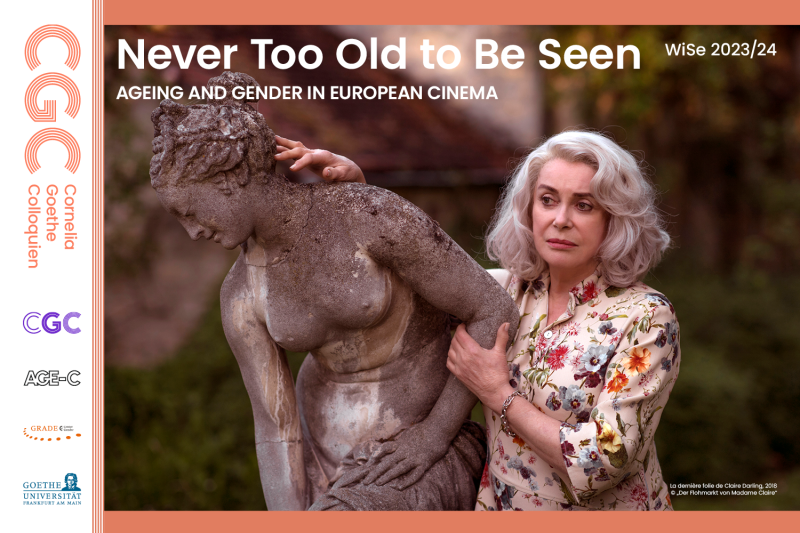In recent years, several European films released in movie theaters have cast middle-aged stars in order to portray characters of an older age: relevant examples that come to mind are Alex Lutz playing a washed-up pop singer in Guy (Alex Lutz, 2018), Tilda Swinton embodying her character’s mother in The Eternal Daughter (Joanna Hogg, 2022), Elsa Zylberstein as an ageing Simone Veil in Simone: Woman of the Century (Olivier Dahan, 2022) and of course Marion Cotillard as Édith Piaf in La Vie en rose (Olivier Dahan, 2007).
This lecture will examine a corpus of such films in order to answer several questions, the first of which is: how does one 'act old'? How much do actors rely on external support such as make-up, costume and accessories (McLean, 2022) or, more recently, CGI? What ‘eloquent’ gestures (Pearson, 1992), postures or voice alterations do they use to express the transition to old age? What kind of narrative and visual frameworks allow these performances to be believable and how well are they received? Beyond the shape that those transformations take in films, this lecture will also address their underlying ideology: because of their excessive nature, they indeed tend to rely on, reinforce or make a caricature out of gender norms of ageing. We will therefore also wonder: what perception of old age do they tend to build?

Dr. Alexandre Moussa holds a PhD in Film Studies from the Sorbonne Nouvelle University (Paris, France). He’s the author of a thesis dedicated to French actress, director and activist Delphine Seyrig. His work focuses on the study of screen performance and star images, as well as gender representation in film. Moussa teaches at the University of Poitiers and also works as a film critic, a film programmer and a screenwriter/director.
The Cornelia Goethe Colloquia are an open discussion forum for interdisciplinary women's and gender studies. Interested parties are cordially invited!

